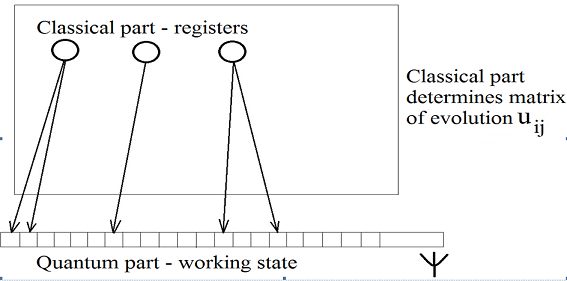
Yuri I Ozhigov
1 Moscow State University of Lomonosov, Russia
2 Institute of Physics and Technology - RAS, Russia
Title: Revision of abstract quantum computer: Why do we need and how to build it?
Biography
Biography: Yuri I Ozhigov
Abstract
The direct simulation of life via computers is impossible. We need to do it on the quantum level, where the complexity grows exponentially. Feynman's idea is to let us build a quantum computer as a device consisting of simple quantum gates like the ordinary computer consists of transistors. And this is suitable to this theory. Experiments have shown that the decoherence is the fundamental factor, which cannot be overcome as we suppress errors in classical computations. Two facts are: the existence of the fast quantum algorithms and decoherence as the stumbling block show that we still don't quite understand how to apply quantum mechanics to complex systems. This area requires the detailed computer simulation and further experiments aimed not to single-particle but to complex phenomena in collectives of distinguishable particles. Lower bounds of quantum complexity show that quantum computer can speedup exactly tasks, which can be speedup by parallel classical performance that confirms the deep connections between quantum and classical computational parallelism. We put forward the hypothesis about universal character of classical algorithms. Any complex evolution of quantum system can be simulated classically. It means that the fundamental source of decoherence is the lack of classical memory of an abstract simulating computer. It seems very plausible that quantum computer in its specific form works in the living matter. This ''biological quantum computer'' differs from Feynman's model but it is essentially quantum and it really works. Such interesting quantum effects as dephasing assisted transport (DAT) in green sulfur bacteria, probable quantum mechanisms of olfactory and magneto reception of birds and insects can be simulated on the existing computers by the extremely simplified "qubit" models.


